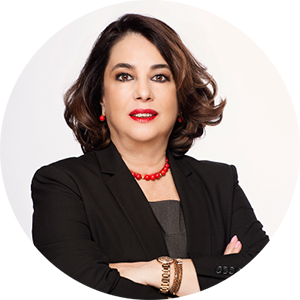We are launching a new section on web portal
The forums’, summits’, and congresses’ main value is a productive communication and collaboration among their participants. The Summer Peace Summit in Brussels brought together women from 14 countries, representatives from different communities. Many of them have already started realising joint projects as well as sharing experience and resources for achieving common goals.
Within the summit, Marina Volynkina, Head of the Eurasian Women’s Community information agency, reached agreement about cooperation with Gülden Türktan, Founder and first Chair of W20. We are launching a new section on our web portal. There we will regularly publish articles about W20’s activity.
The Group of Twenty (G20) includes 19 leading world economies and the European Union that united for strengthening economic cooperation and fighting with the prevailing global financial crisis. It took a while for Women 20 to be created as an outreach group of the G20. There were several developments that lead the way. That is, the G20 developed women’s agenda gradually.

In 2012, at the summit in Mexico, the participants made a commitment ‘to take concrete measures to eliminate barriers preventing women from full participation in economic and social processes and economically empower women in the G20 countries’.
In 2013, in St. Petersburg, during the Russian presidency, the members of the G20 affirmed the importance of access to financial services for women and decided to create the Finance for Women portal together with the International Financial Community (IPC).
In 2014, at the summit in Brisbane, G20 countries made a commitment to reduce the gender gap in their labour market participation rates by 25% by 2025. The experts noted that this would allow increasing rates of the global economic growth as well as reduce inequality and poverty.
That commitment laid the ground for creating the W20, a new social partner of the G20.
In 2015, during the Turkish presidency, the members of the G20 agreed on creating the Women 20 in order to achieve sustainable growth in all countries.

The W20 representatives were selected from all countries of the G20. The process was coordinated by the Heads of the Association of Women-Entrepreneurs of Turkey (KAGIDER), Turkish Association of Women-Entrepreneurs (TIKAD), Women and Democracy Association (KADEM) forming the first Committee of W20.
The Women 20 was launched in 2015, on September 6.
Representatives of G20 countries, International Monetary Fund, Organisation for Economic Cooperation and Development, UN Women, and World Bank Group as well as many prominent business leaders were present at the first official meeting of W20.

The first ever Communiqué of W20 was signed in Istanbul in 2015, on October 17.
In that document, W20 asked the Heads of G20 countries to contribute to economic empowerment of women through strengthening linkages among education, employment, and entrepreneurship. Besides, the document said about importance of providing women with access to education, especially vocational education, financial and productive assets, and markets.
Special attention was paid to developing infrastructure for social care, improving legal system and working conditions, and supporting women’s leadership.

Within Chinese presidency in 2016, the final Communiqué was adopted on May 26, at the summit in Xi’an.
The representatives of W20 asked leaders of G20 for gender equality perspective in global economic governance by eliminating all forms of discrimination against women. There was a call for contributing to women’s economic empowerment and considering their interests when developing macroeconomic policies as well as increasing the level of their employment and social protection. Much attention was paid to necessity of creating conditions allowing women freely obtain education in the sphere of STEM disciplines, finance, entrepreneurship, and green and new technologies.
Women 20 asked governments of G20 to contribute to increase the role of women in digital economy and encourage innovative women’s networks.
Within the German presidency in 2017, in the Women 20 Meeting Communiqué of Berlin, G20 countries were asked to include gender analysis and gender budgeting into their government agendas. The participants of the W20 suggested developing mechanisms building capacity of women’s enterprises, providing gender equality in the process of digital transformation, and enabling access to G20 negotiation tracts for women’s full economic and social participation.

It was noted that G20’s goal of inclusive and sustainable economic growth, could not be achieved without establishing G20’s commitment to the following targets:
- full property rights, legal capacity, and right to self-determination for women and girls as well as their effective protection from violence;
- full access to quality education for girls and women with special attention to technical and vocational education, e-skills, and lifelong learning opportunities;
- full access on equal terms to productive and financial resources for women;
- full access to labour markets and decent working conditions for men and women implementing the G20 Job Quality Framework;
- equal pay and pension rights for equal work;
- GDP measurement and fair redistribution of unpaid domestic and care work including more investment in the provision of infrastructure and public services;
- Equal representation of men and women on decision-making positions.

In 2018, under the Argentina’s presidency, W20 effectively worked on the women’s economic, financial, digital, and rural inclusion and developed the texts signed as the W20 Communiqué of Buenos Aires in October.

The W20 meetings are being regularly held annually in one of the participating countries of the organisation. There was a summit in Tokyo in June of this year. You will be able to read the details of that meeting on the Eurasian Women’s Community web portal soon.
The article is prepared by Viktoria Yezhova on the basis of documents provided by Gülden Türktan
Translated by Yan Zarubin

